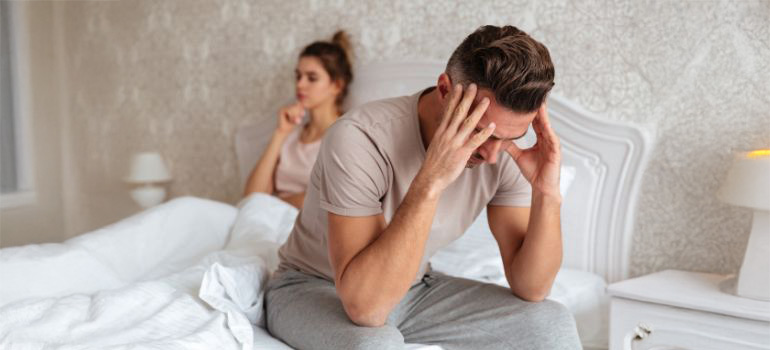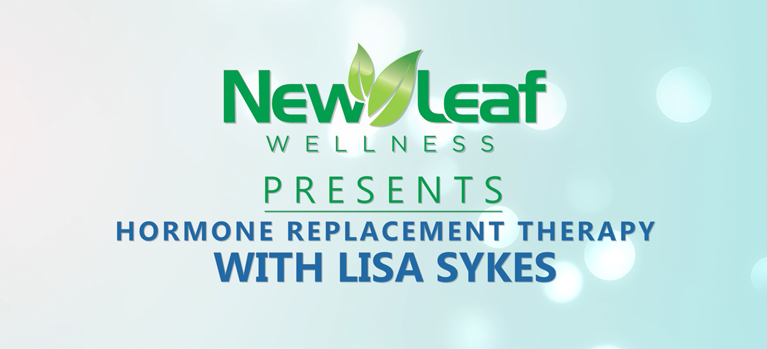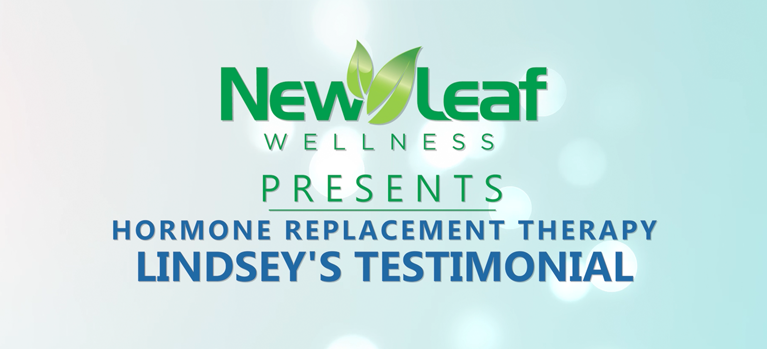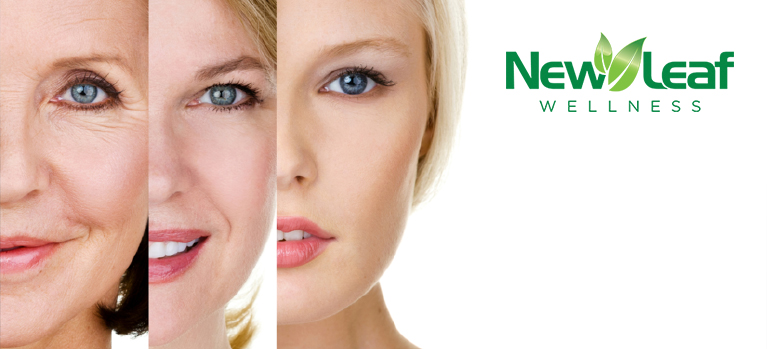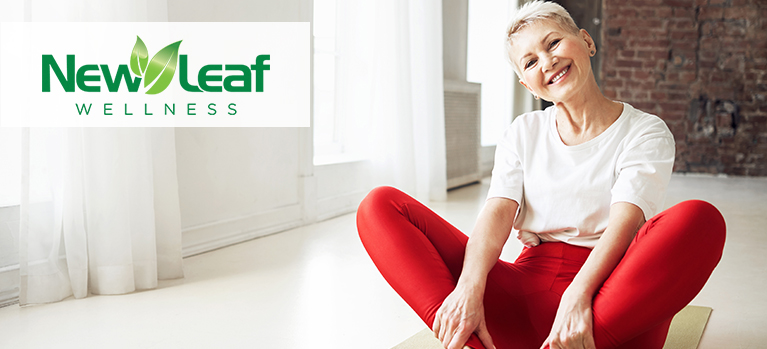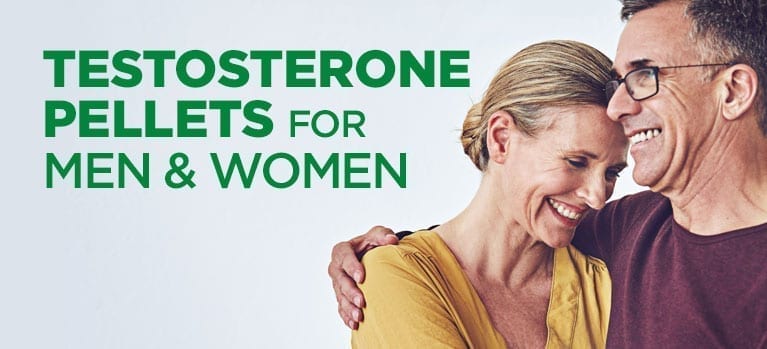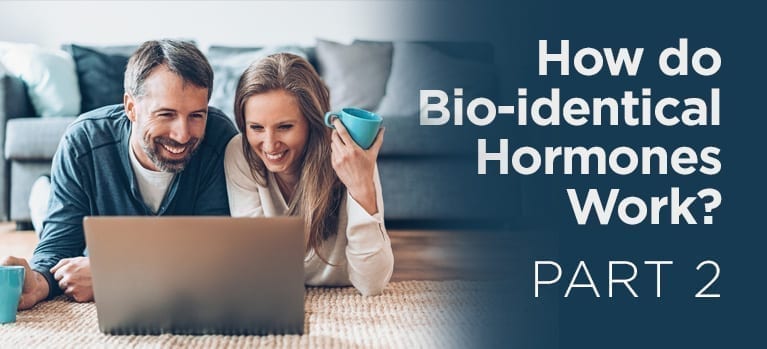People often hold the belief that men age more gracefully than women. This perception is based on the idea that men tend to exude a sense of distinction as they grow older, while women are often perceived as looking aged. But are these notions merely old wives’ tales, or do they reflect genuine stereotypes about aging and gender?

The differences between how men and women age are rooted in the intricate process of collagen loss. Collagen, a protein crucial for skin elasticity, experiences distinct patterns of decline in each gender. Males begin to lose collagen at an earlier stage in life and continue to do so consistently throughout their lifespan. In contrast, females retain most of their collagen until they enter the phase of hormone fluctuations associated with perimenopause and menopause. This biological phenomenon is supported by scientific evidence, underscoring the validity of these contrasting aging experiences.
The role of hormones in the aging process becomes even more evident when delving into the effects of specific hormones like androgen and estrogen. While traditionally associated with male characteristics, androgens also hold significance for women’s health. They are produced in the ovaries and adrenal cortex, eventually converting into estrogen.
Estrogen, a group of steroid hormones, plays a crucial role in developing and maintaining female body characteristics. A fascinating interplay between androgen and estrogen levels exists: declining androgen levels coincide with decreased estrogen production. This decline in estrogen is associated with a range of effects on the female aging journey:
- Bone Density Loss: Particularly noticeable in the facial area, resulting in a more sunken appearance.
- Diminished Sexual Function: A decrease in physical vitality and performance.
- Weight Gain: Often concentrated around the midsection.
- Cognitive Changes: Including a potential decline in mental acuity.
- Emotional Shifts: Alterations in emotional responses and behaviors.
Researchers are actively exploring the impact of androgens on aging skin, recognizing the need for a comprehensive understanding of how declining testosterone levels influence female health.
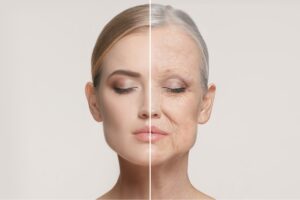
ESTROGEN
Turning our focus to estrogen, insufficient levels of this hormone diminish the body’s ability to counter oxidative stress. Consequently, the skin becomes thin, less elastic, and more prone to wrinkles, dryness, and reduced vascularity.
Interestingly, until the mid-30s, females possess around four times the amount of estrogen found in males. Estrogen contributes to:
- Stimulating collagen, elastin, and hyaluronic acid production helps the skin to stay plump and firm.
- Development of reproductive organs
- Growth of the uterine lining (endometrium)
- Sexual and reproductive function
- The body’s use of carbohydrates and other fats
As estrogen production wanes, so do these vital functions. While the decline in males is gradual, females experience an approximately 80% reduction in estrogen production during the first year of menopause. This estrogen insufficiency leaves the skin more susceptible to oxidative stress, leading to thinness, reduced elasticity, heightened wrinkling, dryness, and decreased vascularity.
PROGESTERONE
Another hormone, progesterone, further shapes the skin’s youthfulness by influencing collagen preservation. However, as we age, progesterone levels dwindle. This decrease commences in the late 20s, accelerates after 30, and nearly disappears by menopause.
Progesterone contributes to:
- Enhanced Hyaluronic Acid Production: Maintaining skin hydration.
- Preservation of Collagen and Elastin: Essential for skin elasticity.
- Involvement in Reproductive Functions: Including ovulation, menstruation, conception, and pregnancy.
The decline in progesterone leads to:
- Menstruation stops or is irregular
- Infertility
- Signs of low progesterone include adult on-set acne, nails cracking, splitting, peeling, and cracking skin on your heels and hands.
- After age thirty, most of us experience a drop in progesterone. Progesterone is partly responsible for stabilizing mood. One of the first signs of this lowered level is a mood shift.
- Low libido, fatigue, foggy thinking
- Slow metabolism, weight gain around the midsection, sugar cravings
- Migraines, headaches, also joint pain, and allergy symptoms

In Conclusion
In essence, numerous factors intertwine to shape the aging process. Hormones certainly play a pivotal role, yet external factors also exert considerable influence. Genetics and hormonal changes are beyond our control, but lifestyle choices can mitigate their effects. Nutrition, stress management, lifestyle habits, and protection from environmental stressors like smoking and sun exposure all contribute to the tapestry of aging.
In conclusion, debunking the notion that men age better than women involves a comprehensive understanding of the intricate interplay between hormones and external factors. While hormones significantly impact the aging process, our choices and actions are equally instrumental in crafting our individual aging experiences.
menopause, Tictoc, BioTe





